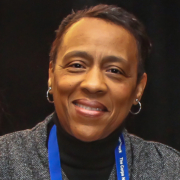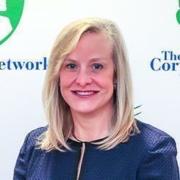
Hearing held by House Natural Resources Committee. Testimony during hearing provided by witnesses representing Green City Force, Conservation Legacy – Ancestral Lands Conservation Corps, Colorado Youth Corps Association.
Press briefing held in front of Capitol Building. More than 80 Democrats from the U.S. House and Senate sign letter to Speaker Nancy Pelosi and Majority Leader Chuck Schumer urging inclusion of the Civilian Climate Corps in the final budget reconciliation deal.
WASHINGTON, DC (July 21, 2021) – On Capitol Hill yesterday, July 20, Representatives Joe Neguse (CO-2), Alexandria-Ocasio Cortez (NY-14), Judy Chu (CA-27), Marcy Kaptur (OH-9), Bobby Rush (IL-1) and Senators Ron Wyden (OR), Chris Coons (DE), and Ed Markey (MA) led more than 80 Democrats from the U.S. House and Senate in a signed letter to Speaker Nancy Pelosi and Majority Leader Chuck Schumer urging inclusion of the Civilian Climate Corps in the final budget reconciliation deal. Congressional leaders hosted a press conference in front of the Capitol Building to discuss the letter. In the afternoon, Rep. Neguse presided over a House Natural Resources Subcommittee on National Parks, Forests, and Public Lands oversight hearing titled, “Examining the Potential for a Civilian Climate Corps.”
“From decades of experience, we know the Corps model is impactful and effective in meeting challenges faced by our communities and today’s young people. On behalf of the more than 130 Service and Conservation Corps organizations actively engaging young Americans in critical conservation and community-building projects across the country, I extend appreciation to the bicameral coalition urging action in Congress to establish a national Civilian Climate Corps initiative,” said Mary Ellen Sprenkel, President and CEO of The Corps Network. “We are grateful for this enthusiasm to expand Corps opportunities and engage even more Americans in job training and projects to enhance our infrastructure and build our resilience. The member organizations of The Corps Network stand ready to support a national Corps program.”
Among other priorities, the letter calls for a Civilian Climate Corps initiative that centers local needs and prioritizes projects that address climate change and environmental justice; provides a living wage; invests in equitable and diverse Corps membership; and is built upon AmeriCorps and existing Corps programs.
Testimony during the Natural Resources Subcommittee hearing came from several individuals connected to the national Corps community. This included Tonya Gayle (view testimony), Executive Director of Green City Force; Scott Segerstrom (view testimony), Executive Director of the Colorado Youth Corps Association; Chas Robles (view testimony), Executive Director of Ancestral Lands Conservation Corps, a program of Conservation Legacy; and LaJuan D. Tucker (view testimony), an alumna of American YouthWorks who works as Environmental Program Coordinator with Wildlife Austin and the Austin Nature Preservation System. The full hearing can be viewed here.
During the hearing, members of Congress asked questions, spoke of the importance of engaging more Americans in wildfire mitigation and environmental resilience work, and expressed support for the work of contemporary Corps programs.
The Corps Network released a proposal and principles for how to build a national Civilian Climate Corps program and has worked with the administration and members of Congress on proposals for how to leverage the existing network of Service and Conservation Corps to engage more Americans in resource management work, including projects to mitigate wildfire damage, rehabilitate habitats, expand access to the outdoors, and improve the energy efficiency of our communities.
In establishing a Civilian Climate Corps initiative, The Corps Network proposes a model in which projects will be completed through public-private partnerships between various agencies and existing and new community-based Corps, many of which receive support from AmeriCorps. The Corps Network emphasizes that investments in expanding Corps should be equitable, with a focus on intentionally enrolling and supporting women, young people of color, urban and rural youth, and others from historically disenfranchised communities. The Corps Network also emphasizes the importance of not only investing in projects for Corps to complete, but investing in workforce development and career pathways, such that service in Corps can lead to good, well-paying jobs.
Established in 1985, The Corps Network provides leadership and support to more than 130 Corps programs across the United States. Corps are community-based organizations that engage young adults (generally ages 16 – 25) and veterans (up to age 35) in service projects that address conservation and community needs.
Collectively, the member organizations of The Corps Network annually enroll roughly 25,000 young people. Through partnerships with local, state and federal resource managers, Corps complete a range of projects. Among other projects, Corps help restore habitats; build outdoor recreation infrastructure; grow fresh food in under-resourced communities; install energy and water-saving retrofits in low-income homes; preserve historic structures; respond to wildfires and other natural disasters; and mitigate the threat of future disasters. From 2019 through 2020, Corps restored more than 1.7 million acres of habitat, planted more than 1.3 million trees, treated over 208,000 acres of invasive species, and built or improved more than 25,300 miles of trails.
###
About The Corps Network
The Corps Network, the national association of Service and Conservation Corps, provides leadership and support to over 130 Corps across the United States. Through advocacy, and providing Corps access to funding opportunities and expert guidance, The Corps Network annually enables more than 22,000 Corpsmembers to strengthen communities, improve the environment and transform their lives through service. Learn more about The Corps Network at www.corpsnetwork.org.
Contact
Hannah Traverse
[email protected]
(202) 737 – 6272 x 119
1275 K St. NW – Ste. 1050
Washington, DC 20005






























































